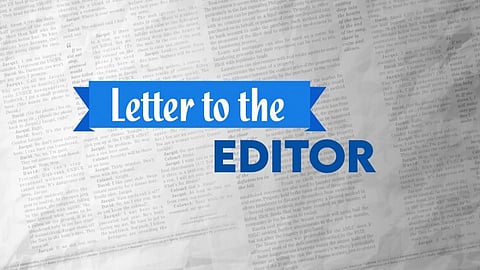
- NEWS
- the EDIT
- COMMENTARY
- BUSINESS
- LIFE
- SHOW
- ACTION
- GLOBAL GOALS
- SNAPS
- DYARYO TIRADA
- MORE

Dear Editor,
The war on drugs has been a contentious issue since its inception under the administration of former President Rodrigo Duterte. It comes with a heavy debate as proponents lauded its success in curbing crime and illegal drug use, while critics decried its human rights abuses and alleged extrajudicial killings.
A recent development has reignited the debate — the possibility of submitting Duterte’s Senate testimony to the International Criminal Court (ICC), which is currently investigating the drug war.
But while most opposition lawmakers and other critics of the former president welcome this proposed move, they also underscored something that others may deem as appropriate and will come with benefits.
One of the primary benefits of submitting Duterte’s testimony to the ICC is the promotion of transparency and accountability. Naysayers say the drug war had been shrouded in secrecy, with allegations of widespread human rights violations by state actors.
Duterte’s testimony, if made public before the ICC, could shed light on the decision-making process behind the war on drugs and expose any potential wrongdoing.
This transparency would be crucial to ensuring accountability because if the ICC finds evidence of crimes against humanity, those responsible must be held to answer. This could serve as a deterrent against future human rights abuses and promote a culture of justice within the Philippines.
The ICC’s investigation into the drug war sends a strong message to the world — the Philippines is not above international law. Submitting Duterte’s testimony would further solidify this commitment and would demonstrate that the Philippines takes its obligations under the Rome Statute, the treaty that established the ICC, seriously.
This commitment to international law can also have a deterrent effect, as it would discourage future administrations from employing violent and extralegal methods in their fight against crime.
By upholding international law, the Philippines can also strengthen its diplomatic relations with other countries that respect human rights.
There is no doubt the war on drugs has left deep scars on Philippine society. Thousands of lives have been lost, and families have been torn apart. Submitting Duterte’s testimony to the ICC could be a crucial step towards healing and reconciliation.
A transparent and accountable process can help to bring closure to the families of the victims. It could also foster a national conversation about the drug war, its impact, and the way forward. This conversation is necessary to heal the divisions within Philippine society and to build a more just future.
However, the decision to submit Duterte’s testimony to the ICC is a complex one. There are valid concerns about the potential for political instability and a protracted legal battle.
Ultimately, the choice lies with the Philippine government. It must weigh the potential costs and benefits and choose the path that will best serve the Filipino people and uphold the rule of law.
The world will be watching closely.
Delilah Samson
samsonite70@yahoo.com
